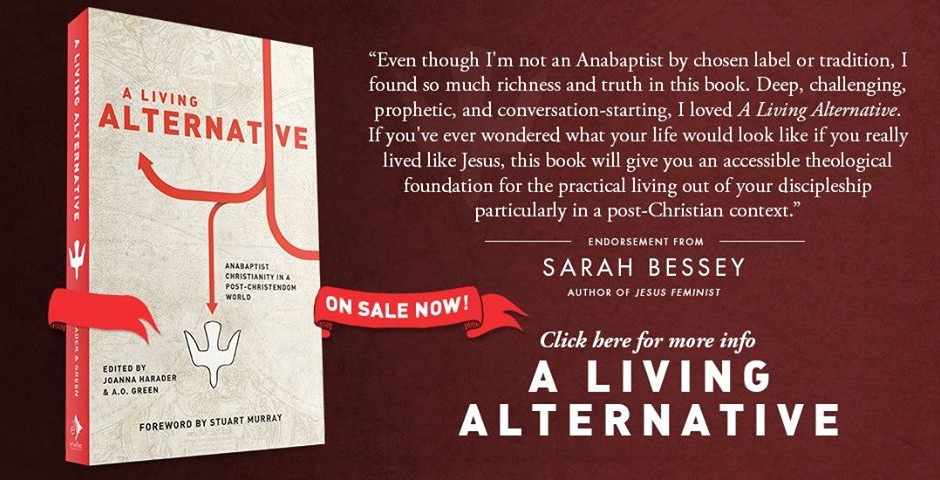A Living Alternative
I recently read through a collection of essays called A Living Alternative: Anabaptist Christianity in a Post-Christendom World. As such, some of the chapters are more on point than others. Overall, it provides a great look at Anabaptist theology and raises the questions that need to be asked in our post-Christendom country today. If you are not familiar with Anabaptist theology you may immediately jump to weird things you’ve heard or seen with Mennonite or Amish communities. While those are expressions of Anabaptist thought, this book shows how rich and diverse this theology and way of viewing Christianity really is. As our world continues to move away from Christianity as the norm, I find myself drawn more and more to Anabaptist theology as a way of making sense how to move forward.
A few passages from the intro (by Tyler M. Tully) help to setup the context for this book and why it is so needed in the Church today:
“Anabaptist simply means, ‘baptized over again,’ and comes from a context where to be baptized into the Church as an infant was to be recognized as a Christian and a citizen of the State all at the same time. Yet these Anabaptists were impressed to live a simple, Jesus centered, alternative lifestyle in accordance with the Scriptures. And so they declared their loyalty to God by choosing to be rebaptized as adults, thus announcing: ‘our citizenship is in the Kingdom of God.’ Placing themselves under immense persecution by Catholics and Protestants by this action, the Anabaptist lifestyle was considered as an alternative to and a rejection of the Church-State.”
“Where the earliest churches were found on the margins of society (and certainly considered not normal), Christendom’s arrival represented the movement of the ‘Church’ to the very centers of Imperial power. But a post-Christendom world displays a movement of the Church back to the margins where the expected norms of Christianity and the Church are not imposed upon secular society at large.”With that in mind, the book offers a great look back on things which may have been easier to see before Christendom had it’s hold. What did the early Church see in the Scriptures? Here are some of my favorite quotes from the book:
“The Bible was written by and for those who are oppressed. Of course, we have some exceptions, such as Solomon, who whines about how life should be but isn’t. It is interesting that even David, who was a powerful king, has most of his published work from times in which he was vulnerable and powerless. This is one of the secrets of the Bible, frankly. Most people born in the human race feel helpless and frail in the midst of powerful forces. The Bible communicates to these people. If there is a lack of interest in the Bible, it is really only among those who feel in control of their lives.” Steve Kimes “[John Howard] Yoder suggested in 1984 that Christians should take our increasingly post-Christian situation in American society as ‘normal’ and not look upon it as some ‘dirty trick of destiny,’ it is, rather, ‘the unmasking of the myth of Christendom, which wasn’t true even when it was believed.'” Brian R. Gumm “But what we as the church must be willing to reclaim at all costs is not simply advocacy for the poor, but engagement and transformation with them. We must find ourselves on the side of the poor, as more than advocates, but as family and friends. The prophetic voice of the church is the greatest when she not only identifies with the poor and the marginalized, but is poor and marginalized herself.” Justin Hiebert
Do You Want to Read the Bible Without Falling Behind?
Sign up your email and I’ll send you a PDF to download and use my custom-made reading plan system. There’s no way to fall behind on this system and every day will be different no matter how long you use it!
I’ll send future content directly to your inbox AND you can dive into the Bible like never before.





